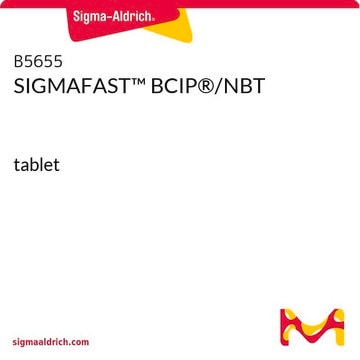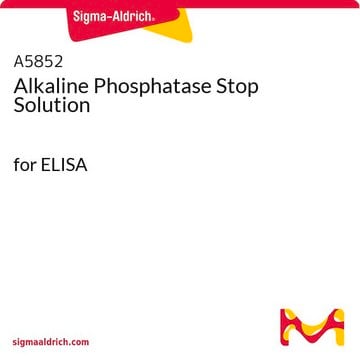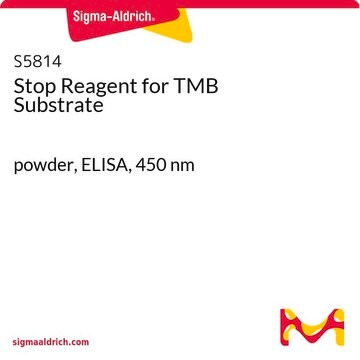AB0100
Alkaline Phosphatase Blue Microwell Substrate
alkaline phosphatase substrate, solution
Synonym(s):
5-bromo-4-chloro-3-indolyl phosphate analog / NBT substrate for microwell assays
About This Item
Recommended Products
product name
Alkaline Phosphatase Blue Microwell Substrate, sufficient for 400 mL working substrate
form
solution
Quality Level
usage
sufficient for 400 mL working substrate
storage temp.
2-8°C
Looking for similar products? Visit Product Comparison Guide
Related Categories
General description
Application
Physical form
Legal Information
Storage Class Code
10 - Combustible liquids
Certificates of Analysis (COA)
Search for Certificates of Analysis (COA) by entering the products Lot/Batch Number. Lot and Batch Numbers can be found on a product’s label following the words ‘Lot’ or ‘Batch’.
Already Own This Product?
Find documentation for the products that you have recently purchased in the Document Library.
Customers Also Viewed
Our team of scientists has experience in all areas of research including Life Science, Material Science, Chemical Synthesis, Chromatography, Analytical and many others.
Contact Technical Service













